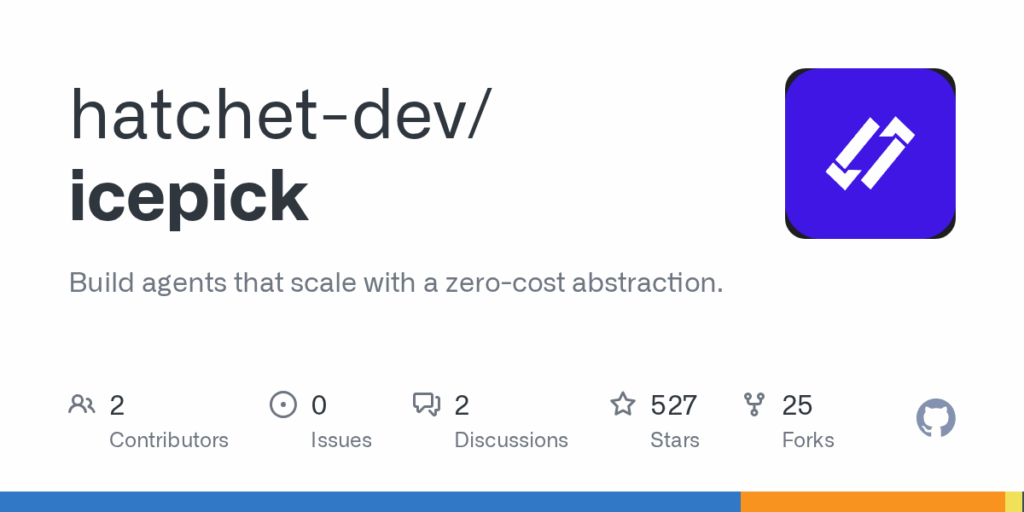pickaxe
Basic Information
Icepick is a TypeScript library for building fault-tolerant, durable AI agents that scale. It provides a lightweight, code-first abstraction for writing agents and tools as plain functions while offloading durable execution, queuing, scheduling, and checkpointing to the infrastructure layer. The project integrates with Hatchet's durable task queue so agent executions can be replayed, recovered, and resumed after failures or long waits for external events. Icepick is explicitly not a prescriptive framework for prompt design, memory, or LLM usage; instead it focuses on the execution model and orchestration so teams can integrate their existing business logic, data access patterns, and LLM calls. The README includes example agent and toolbox code, a CLI-based project bootstrapping command, and links to documentation and patterns for common agent workflows.








